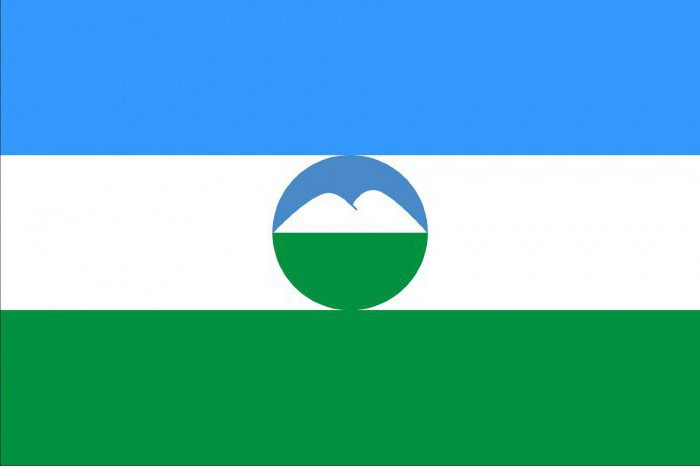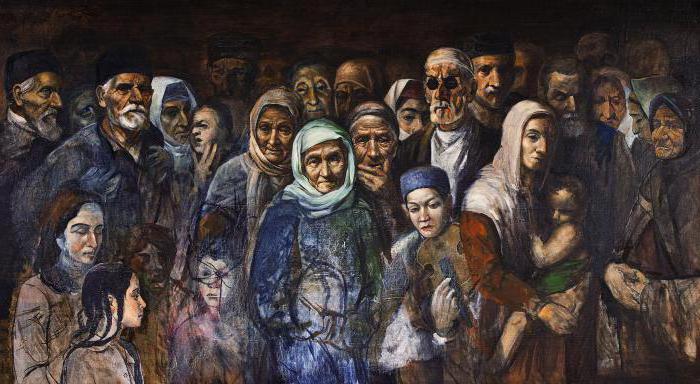
One of the features of the Stalinist regime isEviction of indigenous peoples from their native lands. According to historians, in the USSR representatives of 61 nations were evicted. What was the reason for Stalin's repression? Why do the Balkars celebrate the Day of the Balkar people's revival? What is Kabardino-Balkaria today?

On March 11, 1944, 37 thousand Balkars wereimmersed in wagons for the transportation of livestock. Among the internally displaced persons were not only civilians, but also well-known representatives of the political elite and art. The official reason for the deportation was that the statesmen called the participation of Balkarians in collaborationist groups operating in the interests of the Nazis during the war. According to the unofficial version, the liberated territories were to be annexed to Georgia and thereby become a defensive border in the north of the Greater Caucasus.
The operation for the liberation of the lands passed quickly, inwithin 2 weeks. On February 28, Beria invited Stalin to evict the Balkars, and on March 11 the people had to move to the Kazakh, Kyrgyz, Uzbek, Tajik, Irkutsk SSR and the Far North.

It's been 13 years, and according to the decrees signed in1956 and 1957, the Turks deported by the Presidium of the Supreme Council, Hemshils, Kurds, Crimean Tatars and other peoples received official permission to return. By this time the Balkarian SSR was united with Kabarda.
The reverse resettlement that began in 1956 was completed only by 1979, when 90% of the people left the territories they occupied in foreign lands.
After the collapse of the Soviet Union, the deportation of peoples was recognized as an act of genocide at the state level, and material damage was paid to the victims at a rate of 35,000 rubles.
The European Parliament recognized as an act of genocide the resettlement of Ingush and Chechens.

Despite the long history, this young- The Day of the Balkar people's revival is celebrated only since 1994, after the decree of the president of the KBR was signed. Today, the entire country enjoys this important day: the inhabitants of every town and village prepare various celebrations, and in the evening the lights in the sky launching fireworks in honor of this day.
But most brightly celebrate the holiday in the capital, inNalchik. There are already their traditions and customs. For example, each year the flowers are laid on the monument to Kaisyn Kuliyev, a people's poet and winner of two prizes: the Lenin and the State (RSFSR).
Also, an equestrian procession is held annually andauto race. On March 28, 2017 about 100 SUVs took part in the rally, and the participants gathered from all over the North Caucasus Federal District. SUVs begin their journey from the railway station - from the place where Balkarians returned after 13 years of exile. The equestrian procession passes before the beginning of the rally. This step is a tribute to the past as a symbol of good news, which the horseman used to bring to the house. In 2017, the first time the march and the rally started not in Kashkhatau (a village in the Cherek region), but in Nalchik, near the railway station. The place was chosen not by accident - the Balkarians returned from the long-term exile here.
In 2017, another important event for the people took place - in the solemn atmosphere, an alley was opened in honor of this historic event.
The Day of the Balkar people's revival is not the only national holiday. Besides him, celebrate the Day of the Republic and the Day of the Circassians (on September 1 and 20, respectively).
The republic's day has been celebrated since the new Constitution was published - since 1997, and the date coincides with the day of the formation of the Kabardian SSR.
Kabardino-Balkaria is an Islamic republic, and here every year Islamic holidays are celebrated, the date of which is set according to the Hijra.
Also in the republic all-Russian holidays are held.
All holidays of Kabardino-Balkaria are held brightly and with observance of national traditions.

Annually, except for holidays, Balkars pay tributerespect and memorable special dates in which important historical events occurred. These include the Day of Remembrance of the Victims of the Deportation of the Balkar People (March 8-9) and the Day of Remembrance of Adygs - Victims of the Russian-Caucasian War (May 21).
All festive and memorable days in the republic are non-working.
The Day of the Balkar people's revival is not just a holiday. It is a symbol of the victory of the spirit of the common people over racism and ethnic cleansing.


























